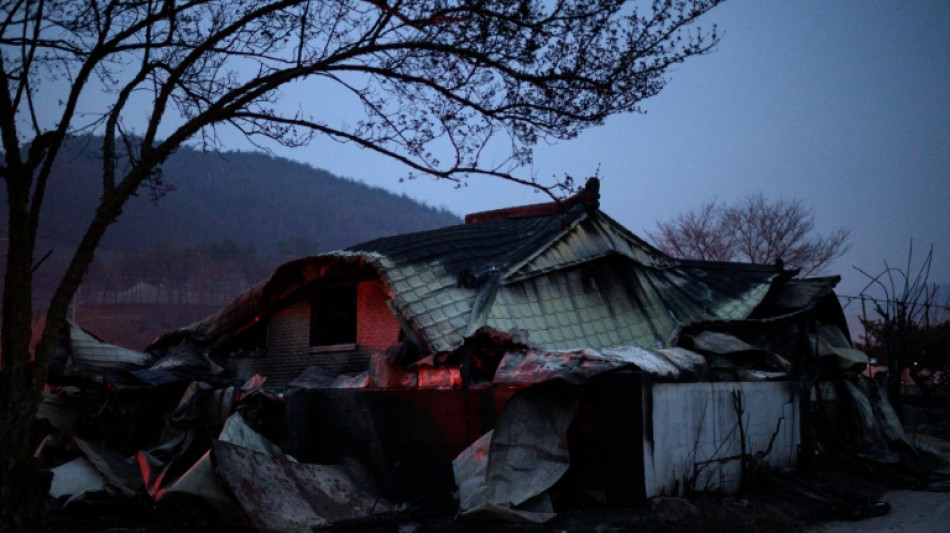
SCS
0.0200


Overnight rain helped douse some of South Korea's worst-ever wildfires, authorities said Friday, as the death toll from the unprecedented blazes raging for nearly a week reached 28.
More than a dozen fires have ravaged large areas of the country's southeast, destroying an ancient temple, and forcing around 37,000 people to evacuate.
The flames blocked roads and knocked out communication lines, causing residents to flee in panic as fireballs rained down on cars stuck in traffic jams to escape the area.
The flames have been fanned by high winds and ultra-dry conditions, with the area experiencing below-average rains for months after South Korea experienced its hottest year on record in 2024.
But overnight Thursday it rained in the affected area, helping firefighters to contain some of the worst blazes.
"The rain that fell from the afternoon into the early morning aided the firefighting efforts," Korea Forest Service chief Lim Sang-seop said.
The rain "reduced the haze, improving visibility, and the cooler temperatures compared to other days create very favourable conditions for firefighting efforts", he said.
South Korea's interior ministry said a total of 28 people had been killed as of Friday morning, and 37 others were injured -- nine seriously.
The fatalities include a pilot in his 70s whose helicopter crashed Wednesday while trying to contain a fire, as well as four firefighters and other workers who lost their lives after being trapped by rapidly advancing flames.
- Hottest year in 2024 -
More than 2,240 houses in the region have been destroyed, according to the latest figures, and an official said Thursday more than 35,000 hectares (86,500 acres) of forest have been burned.
The extent of damage makes it South Korea's largest-ever wildfire, after an inferno in April 2000 that scorched 23,913 hectares across the east coast.
The fire also destroyed several historic sites, including the Gounsa temple complex in Uiseong, which is believed to have been originally built in the 7th century.
Among the damaged structures at the temple are two state-designated "treasures," one of which is a pavilion built in 1668 that overlooks a stream.
Last year was South Korea's hottest on record, although temperatures in the months running up to the blaze had been colder than last year and in line with the country's 30-year average, Korea Meteorological Administration data shows.
But the fire-hit region had been experiencing unusually dry weather with below-average precipitation.
According to the interior ministry, the wildfires were accidentally started by a grave visitor and "sparks from a brush cutter".
Both the devastating California wildfires in January and the fires in South Korea are similar, said Kimberley Simpson, fellow in nature-based climate solutions at the University of Sheffield's School of Biosciences.
"Only three months into 2025, we’ve already witnessed record-breaking wildfire activity in multiple regions.
"As climate change drives rising temperatures and alters rainfall patterns, the conditions that give rise to these devastating fires are becoming more frequent."
Q.Moore--ThChM